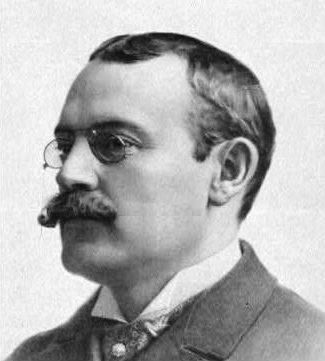Charles Hale Hoyt
| Charles Hale Hoyt | |
|---|---|

Charles Hoyt [image conserved at the Library of Congress]
|
|
| Born |
July 26, 1859 Concord, New Hampshire, U.S.A. |
| Died | November 20, 1900 (aged 41) Charlestown, New Hampshire, U.S.A. |
| Occupation | Dramatist |
| Years active | 1893–1898 |
Charles Hale Hoyt (July 26, 1859 – November 20, 1900) was an American dramatist.
Hoyt was born in Concord, New Hampshire. He had a difficult childhood, as his mother died when he was nine years old. He graduated at the Boston Latin School and, after being engaged in the cattle business in Colorado for a time, took up newspaper work, first with the St. Albans (Vt.) Advertiser, and later becoming musical and dramatic critic of the Boston Post.
Beginning in 1883, Hoyt turned playwright and wrote a series of twenty farcical comedies (roughly one per year until his death) and a comic opera. Hoyt's plays emphasized individualized characters drawn from the everyday experiences of ordinary people. His 10th play, A Trip to Chinatown (1891), with its hit tune "The Bowery" and its then-record 657 performance run, and his 1883 play, A Milk-White Flag, were the most successful. Both were performed at Hoyt's Madison Square Theatre in New York, often called simply "Hoyt's Theatre" during the seven years he ran it. He was a highly popular playwright and producer, and was very financially successful, thanks in part to the assistance of his business partners, Charles W. Thomas and Frank McKee. 1884's A Parlor Match, adapted from a vaudeville act, was another popular Hoyt play.
By a landslide, Hoyt was the 19th-century playwright who did the most to combine baseball with his love for the theater. Besides having covered Boston Beaneater baseball for the Boston Post, he was a member of the Boston Elks lodge, whose members included fellow theatrical-sports buff Nat Goodwin. In early 1888, Hoyt was responsible for the stage debut of Boston Elk-Boston Beaneater Mike "King" Kelly in his A Rag Baby, and for the first-ever star billing given to a ballplayer on the stage. The latter took place in 1895, with longtime Chicago diamond star Cap Anson drawing the distinction through his A Runaway Colt.
...
Wikipedia
